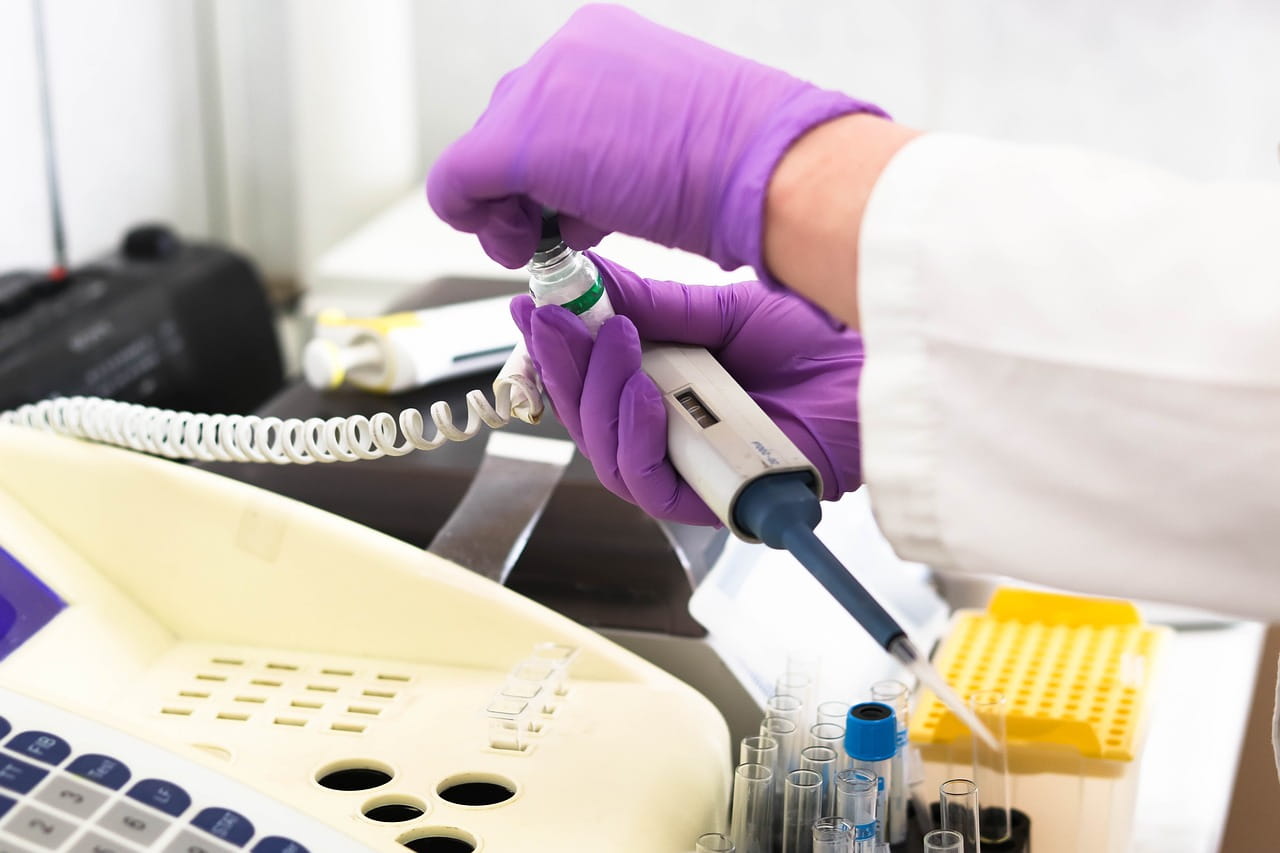Contents
- 1 Introduction to AioTechnical.com Health
- 2 Developments in Healthcare and Artificial Intelligence
- 3 AI Technology’s Advantages for the Healthcare Sector
- 4 AI Applications Being Used in Healthcare Today
- 5 Taking Care of Ethical Issues
- 6 AioTechnical.com Health’s Future
- 7 In summary: Acknowledging AI’s Potential to Improve Healthcare
Introduction to AioTechnical.com Health
Greetings from AioTechnical.com. Health: the nexus of cutting-edge technology and healthcare! The digital era is bringing about remarkable developments in artificial intelligence (AI) that are transforming several industries. Additionally, AI has the power to fundamentally change the way doctors diagnose, treat, and care for patients in the healthcare industry.
In the future, imagine a medical professional with access to sophisticated technology that can quickly and accurately analyze enormous volumes of patient data to provide individualized treatment plans and precise diagnoses. Or picture a future where wearables with AI capabilities can continuously monitor our health and warn us of any possible problems before they get out of hand.
As AI continues to push boundaries and transform the healthcare industry, the possibilities appear limitless. Now, let’s investigate the many advantages that artificial intelligence (AI) in healthcare offers patients and medical practitioners. Prepare to set out on a quest to improve your health with artificial intelligence!
Developments in Healthcare and Artificial Intelligence
In recent years, artificial intelligence (AI) has advanced significantly and transformed several industries. The healthcare industry is one where AI has enormous promise. AI has the potential to completely change the way we approach healthcare because of its capacity to process large volumes of data and carry out intricate tasks.
Machine learning is a significant development in AI technology. Without explicit programming, this area of artificial intelligence enables machines to learn from data and gradually improve their performance. Large datasets can be used to train machine learning algorithms in the healthcare industry to accurately anticipate patient outcomes, treatment options, and illness diagnosis.
AI is also quite good at image recognition. Computers can now accurately analyze medical pictures, such as MRIs and X-rays, thanks to deep learning algorithms. For radiologists, this not only saves time but also improves diagnosis accuracy.
Moreover, computers can comprehend human language patterns and retrieve pertinent data from written texts or spoken conversations thanks to natural language processing, or NLP. Natural language processing (NLP) can be used in healthcare settings to automate administrative activities such as documenting electronic health records or helping doctors quickly find pertinent medical material.
Furthermore, robotics has become a crucial element in AI-assisted surgery. Surgeons doing minimally invasive treatments can benefit from improved agility and real-time visual input from surgical robots outfitted with sophisticated imaging equipment.
The ramifications of these developments in artificial intelligence are profound for both patients and healthcare providers. By utilizing AI technology, we can anticipate increased diagnostic precision and more successful treatments that are individualized to meet the needs of each patient.
AI Technology’s Advantages for the Healthcare Sector
There are numerous and extensive advantages of AI technology in the healthcare sector. A primary benefit is an increase in diagnostic precision. AI systems that analyze patient data can provide physicians with faster, more accurate diagnosis support. Better patient outcomes and expedited treatment regimens may result from this.
Enhanced operational efficiency in the healthcare sector is another advantage. Artificial intelligence (AI) solutions can automate administrative duties like making appointments and managing medical records, giving healthcare providers more time to concentrate on patient care. This lowers human mistakes while simultaneously streamlining procedures.
AI has the potential for customized medical care as well. AI systems can recognize trends in massive datasets and forecast the best course of action for each patient based on their unique needs. This could completely change how diseases are treated by enabling personalized medicines depending on an individual’s genetic composition or medical background.
AI technology also makes it possible to remotely monitor patients via wearables or other sensors, following their vital signs continuously and identifying any irregularities early on. By taking a proactive stance, significant difficulties or hospital stays may be avoided.
Additionally, AI-driven robots have been created to help with surgery, improving the accuracy and safety of the process. By combining cutting-edge imaging methods with real-time input from the motions of surgeons, these robots can minimize the hazards associated with human error and improve surgical precision.
AI Applications Being Used in Healthcare Today
The way medical personnel diagnose, treat, and manage patients is revolutionized by the current applications of artificial intelligence (AI) in the healthcare sector. AI technology has demonstrated enormous promise in several healthcare domains.
One prominent use is radiology, where AI systems can accurately assess medical imaging, including MRIs, CT scans, and X-rays. Compared to using only traditional approaches, this helps clinicians spot irregularities or possible disease indications more quickly and correctly.
AI is being utilized in customized medicine to enhance patient care in addition to diagnostics. AI algorithms can provide personalized treatment plans considering individual aspects like genetics and lifestyle decisions by evaluating enormous volumes of patient data, including genetic information and medical records. This method guarantees that every patient gets the best care possible for their particular situation.
Drug research is another field in which artificial intelligence is making significant progress. Conventional approaches to drug development can be expensive and time-consuming. However, researchers might significantly speed up the discovery process by using machine learning algorithms to evaluate massive databases on chemical structures and possible drug interactions.
Additionally, natural language processing-powered virtual assistants are improving patient-doctor communication. These programs, which resemble chatbots, can quickly respond to simple health-related queries and relieve part of the workload for medical professionals who would otherwise have to respond to these questions directly.
These recent uses highlight how AI technology can revolutionize healthcare environments. We may anticipate even more cutting-edge solutions to arise as research and development continue rapidly. For example, robotic surgeons may assist with intricate surgeries, and predictive analytics may aid in preventing diseases before they fully display symptoms.
Taking Care of Ethical Issues
Undoubtedly, the application of artificial intelligence (AI) in healthcare has the potential to transform how we receive medical care altogether. However, there are ethical issues that need to be addressed in addition to its potential advantages.
Data security and privacy are two main issues. AI technology requires a great deal of personal health data collection and analysis. Thus, it’s critical to ensure that this data is safe from misuse or unauthorized access.
A further ethical factor to consider is the transparency of AI algorithms. Patients and healthcare providers must understand precisely how these algorithms arrive at judgments, diagnose illnesses, and suggest treatments. While maintaining accountability, transparent AI systems can support the development of trust between patients and clinicians.
Concerns have also been raised about prejudice in AI algorithms. Different groups may receive unequal treatment if the training data used to create these algorithms is biased toward particular demographics or lacks variety. Creating objective datasets during the training phase is essential to resolving this problem.
In addition, there are worries about AI-driven automation leading to employment losses in the healthcare sector. AI may make some jobs obsolete even though it can increase productivity and streamline procedures. Retraining displaced workers is crucial to minimizing the adverse effects on employment chances.
When AI is used in decision-making processes that have a direct impact on patient care outcomes, ethical issues come up. It’s crucial to employ machine-generated recommendations in addition to human judgment and expertise rather than depending only on them.
We can begin creating laws and rules that guarantee the ethical application of AI in healthcare while optimizing its potential advantages for all parties concerned by addressing these ethical issues upfront.
AioTechnical.com Health’s Future
AI technology will continue transforming healthcare in ways that are only beginning to be imagined as we look to the future. TechnicalAio.com With its cutting-edge innovations and creative ideas that could significantly improve patient care, the health sector is leading this fascinating transition.
AI has a lot of potential, and one area is diagnosis. Envision a future in which diseases are identified more precisely and sooner than ever. By using AI algorithms to analyze large volumes of data from imaging scans, lab tests, and medical records, doctors may make better-educated decisions and create individualized treatment regimens unique to each patient.
Telemedicine presents yet another fascinating possibility for the development of healthcare. AI-powered virtual assistants are making it easier and more efficient for folks who live in rural places who may find it challenging to reach traditional medical facilities to receive high-quality healthcare. These assistants can screen patients’ symptoms and provide preliminary diagnoses remotely.
AI offers a lot of promise for the development and discovery of new drugs. Scientists can find novel treatment targets more quickly than ever by sorting through enormous databases of genetic data using machine learning techniques. This may result in the creation of novel therapies for illnesses thought to be incurable.
Furthermore, wearable technology will be essential for continuously monitoring our health metrics as it becomes increasingly ingrained in our daily lives. AI algorithms that analyze the real-time data gathered by these devices can quickly identify early warning indicators of health problems, allowing for the rapid initiation of necessary interventions.
However, it’s crucial to address the moral issues raised by incorporating AI into healthcare systems and concentrating on the potential. Concerns like protecting patient privacy must be carefully considered while maintaining openness regarding the moral uses of patient data.
In summary: Acknowledging AI’s Potential to Improve Healthcare
The tremendous potential of AI technology is changing the face of healthcare. Using artificial intelligence to improve patient care, increase diagnostic accuracy, expedite administrative tasks, and ultimately save lives, AioTechnical.com Health is leading this change.
With the development of deep learning and machine learning algorithms, artificial intelligence (AI) has become a vital tool for healthcare professionals. AI can analyze massive medical data faster and more accurately than humans, from early disease identification to customized treatment regimens.
There are many advantages to using AI in the healthcare sector. It decreases errors, lowers expenses, and increases efficiency. Doctors can concentrate more on providing patients with high-quality treatment by automating repetitive procedures like appointment scheduling and prescription reminders.
We are currently seeing how artificial intelligence is changing several facets of healthcare. Natural language processing-powered virtual assistants assist patients in learning more about their conditions or prescribed treatments. Tools for predictive analytics can identify high-risk patients who might need to receive emergency care.
However, it’s critical to address ethical concerns about privacy and security as we embrace new technology breakthroughs in healthcare delivery systems. When applying AI technologies in medical contexts, patient data security ought to come first.
There is much room for creativity when using AI technology in the medical profession, both for AioTechnical.com Health and other domains. The advancement of intelligent wearable technology that can continually track vital signs will make it possible to establish early chronic illness identification and preventive measures.
Taking advantage of AI technology’s capabilities has enormous potential to improve healthcare results globally. At AioTechnical.com Health, we’re fully committed to realizing this promise while ensuring patient safety always comes first.
Thus, let’s work together to create a future where cutting-edge innovations like artificial intelligence transform the healthcare sector and improve everyone’s health.
Good luck, Habibi!
Come to the website and explore some mind-blowing content.
- Why Every Fashionista Needs a pork pie hat in Their Wardrobe

- Ultimate Guide to Shopping for parachute pants: Where to Buy, What to Look For

- Exploring the Delicate Flavors of tagliolini Pasta: A Culinary Journey

- Uncovering the Truth Behind blog del narco: A Deep Dive into Mexico’s Drug War

- Exploring the History and Tradition of cempasuchil in Day of the Dead Celebrations

- The Ultimate Guide to boquerones: How to Prepare and Enjoy these Spanish Delicacies






